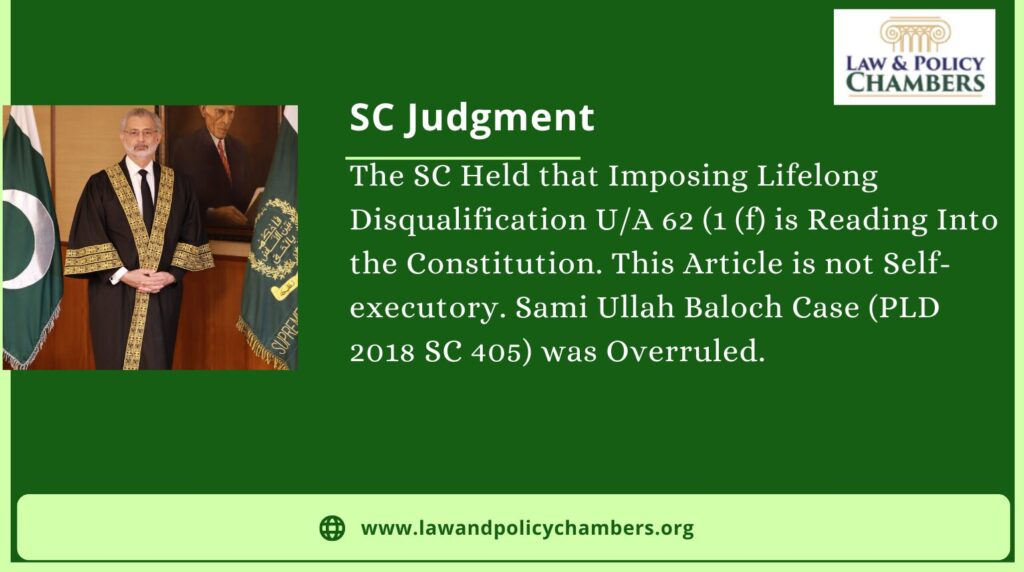Treating Declaration by a Civil Court as Declaration Mentioned in Article 62(1)(f) Amounts to Reading into the Constitution: SC
A seven-member larger bench by 6 to 1 (Justice Yahya Afridi dissented) reinterpreted Article 62 (1) (f) of the Constitution declaring that imposing lifetime ban on a person under the said Article on the basis of a declaration made by a court of civil jurisdiction is too much reading into the Constitution which is against the principle of harmonious interpretation. The said Article is not self-executory as it does not specify any court of law to adjudicate upon a matter under the said the Article; it does not specify a procedure for how the declaration mentioned in the said Article can be made and neither does it provide for period of disqualification.
The Court held that until a law is enacted to put the said Article into motion and make it executory, it will stand on a similar footing as Article 62(1)(d), (e) and (g). It implies that the said article will serve as a guideline for the voter to exercise their right to vote. The Court also overruled its earlier judgment, Sami Ullah Baloch v Abdul Karim Nausherwani (PLD 2018 SC 405), in which the Court had held that disqualification would last during the substance of the declaration made by the Court.
Justice Yahya Arfidi, a sole dissenting judge, did not agree with the majority judgment and affirmed the earlier view of the Court in the Sami Ullah Baloch Cas. He held that the said judgment neither imposes lifetime ban nor permanent. The disqualification so made will remain in force until the declaration by the Court is in field.
c.a._982_2018_08012024



